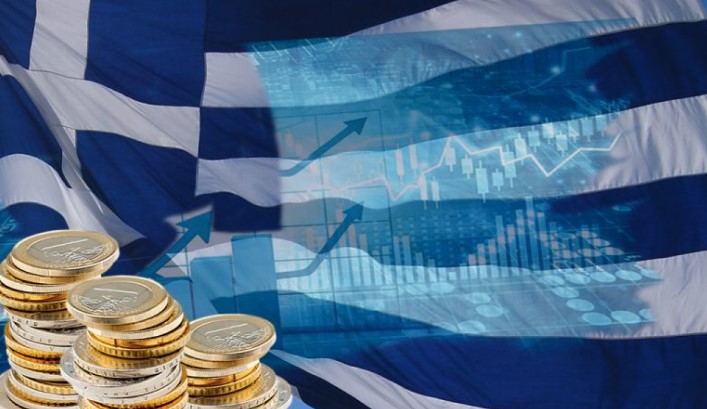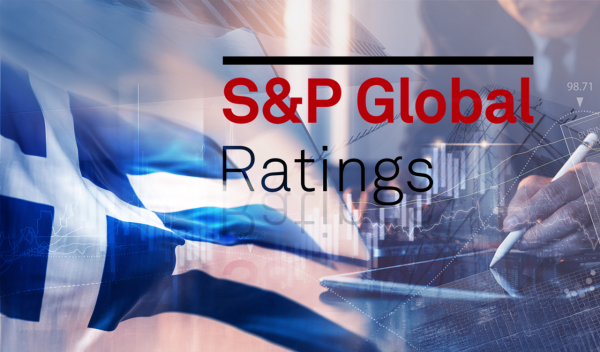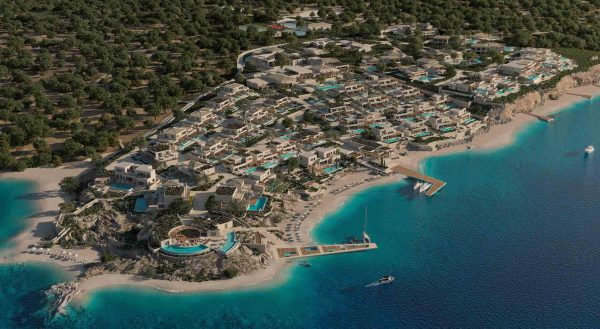
Tonight, Greece has its third and most critical appointment with a rating agency. The strictest evaluator of the Greek economy, i.e. Moody’s, is facing a difficult moment. The international markets are going through a new test, after the collapse of banks in the USA – and the rescue of Credit Suisse -, while the Greek economy has entered a highly tense pre-election period.
Under this climate, the agency is asked to rate Greece and the Greek debt. The country is one step behind investment grade, according to the three rating agencies S&P, DBRS and Fitch. The exception is Moody’s, which still holds Greece back by 3 notches.
Ahead of the spring elections, three Greek debt assessors have appeared in just 17 days. The agencies leave their mark on whether or not they will achieve investment grade in 2023. After the German agency Scope (BB+) in March, Canadian DBRS (BB high) followed, and tonight Moody’s (Ba3).
The “Moody’s of silence” and Greek elections
The bets on the “silent” Moody’s are again focused on the main issue of whether it will publish a report and whether it will eventually proceed to upgrade the country’s credit rating. The reason is that the agency in question has Greece 3 levels lower than the investment category, in the “Ba3” category.
The Greek government expects a positive move by the house, in order to reduce the distance to the investment level. If this step is indeed taken, even in the midst of a banking turmoil, Greece will gain important points. It would also be a political boon to the government, which is receiving heat from citizens over the Tempi accident and blame for the train crash.
After all, the political factor has been measured by the agencies long ago. However, the new polls show new trends and the possibility of a long pre-election period. For this reason, Moody’s may not make an upgrade move and wait until the fall and after the elections are over. The next opportunity for Greece, from the agency in question, is on September 15.
S&P and Canadian DBRS
The next appointment for Greece is on April 21, as the first S&P assessment for this year is scheduled. The second scheduled appointment is for October 20, 2023. Then, the assessment will become a possibility amid intense pre-election climate. Although expectations do not rule out an upgrade of the country before the end of the elections, estimates indicate that the move could come in October.
Last Friday DBRS confirmed the BB high rating. Like all agencies, Canadian DBRS referred to the “election” factor. Indirectly, but not clearly, it connected the positive, until now, course of the Greek economy and the reforms to the stable governments of the last years. The uncertainty of the change in the political scene has not yet been incorporated into the forecasts, where the new correlations show the difficulty of collaborations.
According to DBRS the next parliamentary elections will be held this year, probably in the Spring. With the current electoral system introduced by the SYRIZA/ANEL joint government in 2016 – which is based on simple proportional representation – the formation of a single party government will not be possible. If there is no multi-party cooperation, the most likely scenario is a second election, about a month after the first. In DBRS Morningstar’s view, policy continuity is expected with the RRF providing incentives to continue reforms, however, a prolonged election cycle could lead to some delays in policy implementation. In recent years, Greece has enjoyed a stable political environment and good cooperation with its counterparts and the EU institutions under the governments first of SYRIZA and then of New Democracy.
Latest News

Corruption Still Plagues Greece’s Driving Tests
While traffic accidents continue to claim lives on Greek roads daily, irregularities and under-the-table dealings in the training and testing of new drivers remain disturbingly widespread

Pope Francis Died of Stroke and Heart Failure Vatican Confirms
As news of the official cause of death spread, tributes poured in from across the globe. The 1.4 billion-member Catholic Church is united in grief, remembering a pope who championed inclusion, justice, and compassion

Increase in Both Museum Visits, Revenues for 2024
As expected, the Acropolis was the top archeological site in the country, followed by Sounion, Mycenae, the ancient theater of Epidaurus, and Vergina in northern Greece

Where Greece’s Tourists Come From: A Look at 2025’s Top Visitor Markets
The United Kingdom continues to hold the top spot as the largest source of incoming tourism, with 5.6 million seats booked for Greece this summer — up 2.2% from last year. This accounts for 20% of all international air traffic to Greece

Pope Francis: A Pontiff Who Reshaped the Papacy and Sparked a Global Conversation
His first words from the balcony of St. Peter’s Basilica—“Brothers and sisters, good evening”—set the tone for a pontificate that would challenge norms, favor mercy over dogma, and bring the papacy closer to the people.

When Blue Skies was Unmasked as ND’s Political ‘Slush Fund’
The fact that so many top New Democracy (ND) party cadres were paid by the firm Blue Skies, owned by Thomas Varvitsiotis and Yiannis Olympios, without ever citing this publicly, raises very serious moral issues, regardless of the legality

Greek Women’s Water Polo Team Top in the World after 13-9 Win Over Hungary
The Greek team had previously defeated another tournament favorite, the Netherlands, to reach the final.

S&P Raises Greek Rating; BBB with Stable Outlook
S&P’s decision raises the Greek economy to the second notch of investment grade ladder, at BBB with a stable outlook.

Greek Tourism Optimistic About Demand from American Market
A recent survey by MMGY Global, conducted from April 3–5 with a sample of 1,000 U.S. adults, found that 83% of Americans still intend to take leisure trips over the next 12 months, a slight drop from 87% in late February

New Exposé by Domumento Reveals Nefarious Triangular Link of ‘Black Money’ with New Democracy, Blue Skies, & Truth Team
The latest exposé by the Documentonews.gr news site lays bare what appears to be a surreptitious path of indirect financing of ND through the business sector—transactions that, as widely understood, rarely occur without expectations of reciprocal benefit











![Πλημμύρες: Σημειώθηκαν σε επίπεδα ρεκόρ στην Ευρώπη το 2024 [γράφημα]](https://www.ot.gr/wp-content/uploads/2025/04/FLOOD_HUNGRY-90x90.jpg)


![Ξενοδοχεία: Μεγάλο το ενδιαφέρον για επενδύσεις στην Ελλάδα – Η θέση της Αθήνας [γραφήματα]](https://www.ot.gr/wp-content/uploads/2025/03/Athens-hotels-90x90.jpg)


![Airbnb: Πτωτικά κινήθηκε η ζήτηση τον Μάρτιο – Τι δείχνουν τα στοιχεία [γράφημα]](https://www.ot.gr/wp-content/uploads/2024/07/airbnb-gba8e58468_1280-1-90x90.jpg)
























 Αριθμός Πιστοποίησης
Αριθμός Πιστοποίησης